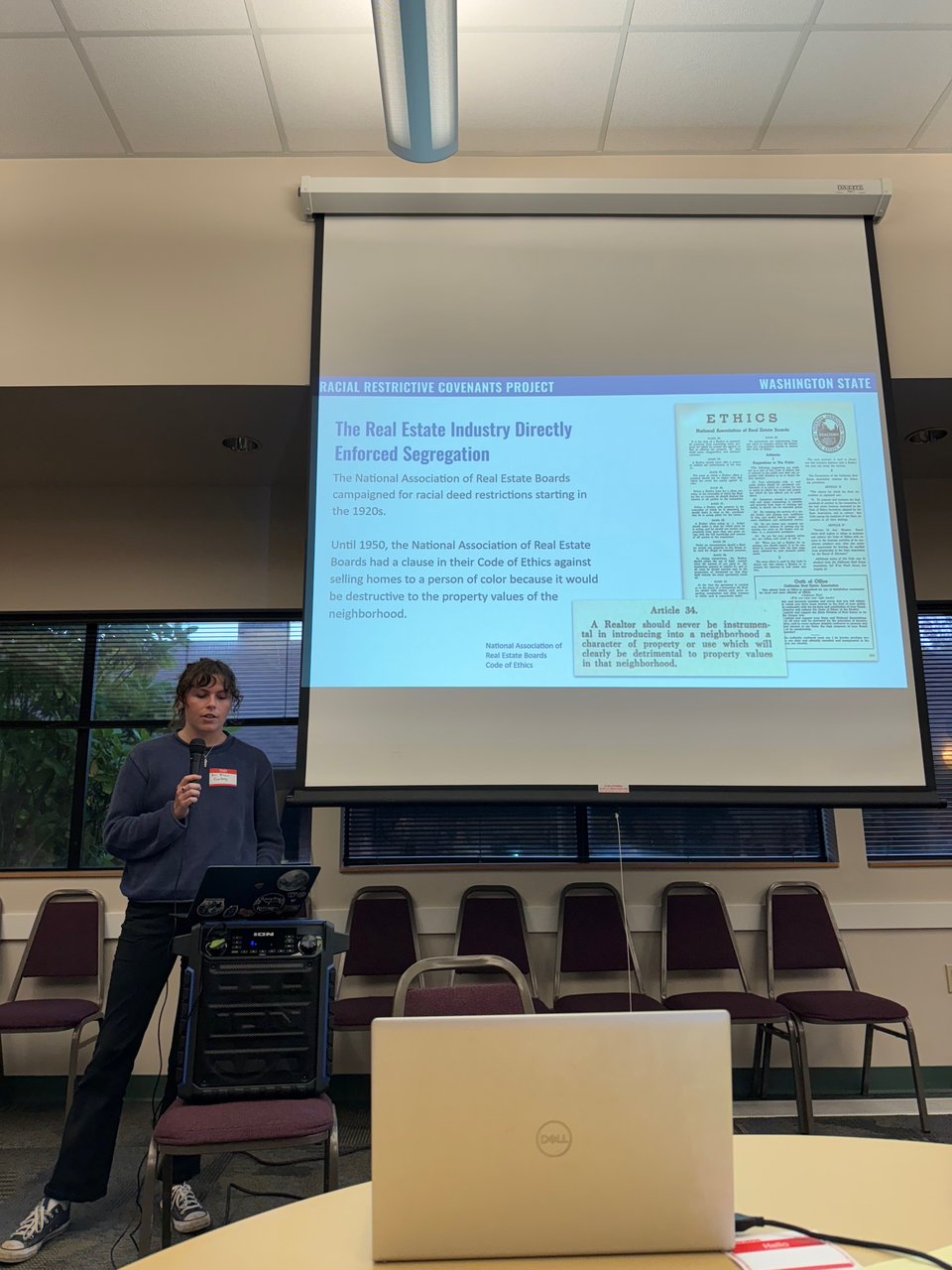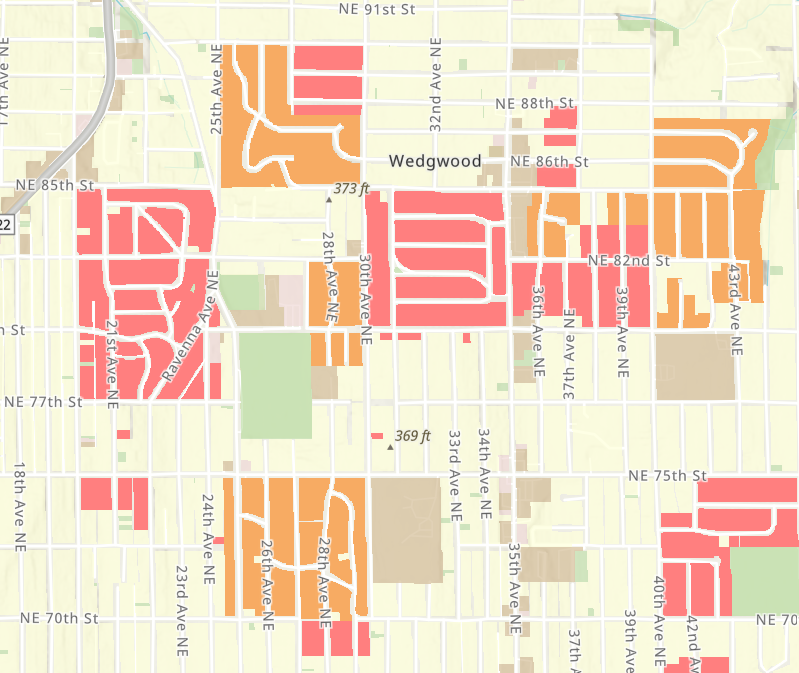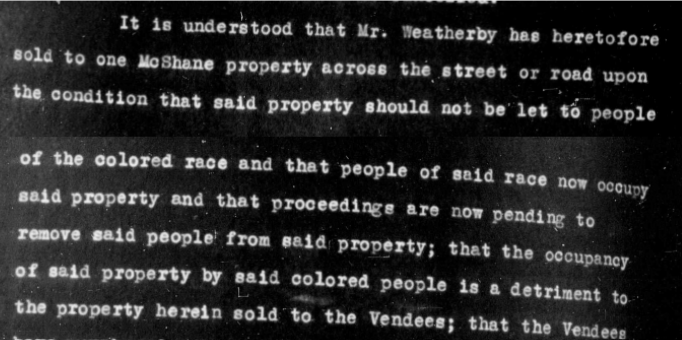Racial Restrictive Covenants Project: Wedgwood Special Edition
Confronting a Legacy of Racism: The Steps Taken by the North Seattle Neighborhood of Wedgwood
By Isabel Smith

On Monday, Sept. 16, dozens of residents filled the function room of Our Lady of the Lake Catholic Church in the Wedgwood neighborhood in North Seattle. Their purpose? To learn how to expunge the racist restrictions that for generations have been part of their neighborhood’s property records.
The Wedgwood Community Council invited the Racial Restrictive Covenants Project team to teach residents about the history of housing discrimination in the neighborhood and Seattle and assist them in filling out modification forms to eliminate racist language from their deeds.
While racially restrictive covenants have not been legal, since the passage of the Fair Housing Act of 1968, they remain on the property deeds of more than 40,000 homes in Seattle and King County.
Recent state law has provided a way for homeowners to strike out these restrictions by filing modification forms with their county’s auditor at no cost. Here is how.
Modification forms do not completely remove racially restrictive covenants from original deeds, allowing historians to continue cataloging these restrictions. However, it does remove the language from future property documents and acts as a condemnation of this racist history.
HOUSING DISCRIMINATION IN WEDGWOOD
Along with much of North Seattle, Wedgwood was once a severely restricted neighborhood. The Covenants Project has identified eight restricted subdivisions containing hundreds of properties within Wedgwood alone. A few more subdivisions were advertised as restricted in newspaper ads.

The neighborhood was subdivided and developed by Albert Balch. In the 1940s, Balch was one of the region’s premier land developers. He was the president of the Board of Realtors and used that position to encourage other realtors and developers to impose racial restrictions. In addition to Wedgwood and the nearby neighborhood of View Ridge, Balch developed large tracts of property in Renton, Shoreline, and other areas in King County.
Even before Balch named the area Wedgwood, some earlier property owners imposed and took steps to enforce racially restrictive covenants in the neighborhood.
In their community presentation, the Covenants team detailed one notorious example. A deed of sale from Martha Hawks to E. B. and Lillian Nelles in 1932 discusses pending proceedings to remove a Black family from a property across the street from the one being sold in this deed. The family rented the home, but because the owner had violated the property’s restrictive covenants, the family could legally be forced out.

The deed states that the family living in the neighborhood is a “detriment to the property” being sold to the Nelles. The deed even stipulates that if the Black family has not been removed by a given date, the Nelles can dissolve the contract of sale and be refunded the full purchase price, plus an additional $500 (over $10,000 in today’s money) to compensate them for the value of any improvements made to the property.
This situation demonstrates how covenants acted to bind individual property owners from selling or renting to people of color and keep neighborhoods all-white in the name of protecting property values.
REFLECTING ON THE PAST
The Wedgwood Community Council has been a leader in efforts to address the legacy of racist exclusion in Seattle. In 2020, the Wedgwood Community Council issued an acknowledgment and apology for earlier councils’ actions that produced racial exclusion and discrimination:
“We acknowledge that past actions to ‘protect’ or ‘preserve’ a restricted neighborhood born out of racist covenants, discriminatory lending practices, and exclusionary real estate practices perpetuate the inherently racist systems that shape our community – like so many others,” the statement said.
At this recent event, dozens of residents took additional steps toward acknowledging and condemning this history by having their modification forms notarized, submitting them to the King County Auditor, and spreading the word to their neighbors.
To learn more about the history of racially restrictive covenants in Washington state, check out the Racial Restrictive Covenants Project website and subscribe to the project’s newsletter. To learn more about Wedgwood’s history, check out the Wedgwood in Seattle History blog run by lifelong Wedgwood resident Valarie Bunn.
The Racial Restrictive Covenants Project is committed to discovering and teaching about the history of housing discrimination in Washington state. The project conducts outreach events for various organizations from corporations to churches to community groups to schools. To coordinate an event with the project, whether it be a presentation or modification assistance, contact the project via email: wacovenants@gmail.com.